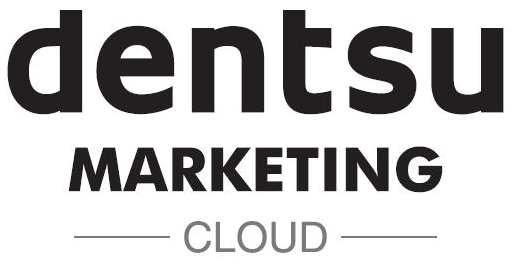As 2021 ended, there were more than 280,000 data breach notifications since the EU’s GDPR Regulations came into effect. More than 300 million USD worth of fines were imposed for several infringements as per the data protection laws. Adapting to the blueprint of what was implemented in EU, we saw some developments across the globe, that included new data protection bills signed into law by both Saudi Arabia and China. A host of other countries including, India, South Korea, Vietnam, Canada, and many more around the world are reviewing proposed data privacy bills.
Japan made some amendments to the Japan’s Act on the Personal Information Protection guidelines. This will go live early in 2022. Adding to this, Australia is hoping to overhaul its privacy legislation that was passed in 1988. Looking at the situation in the US, there are more than 15 state wise data privacy bills under discussion with the committees, at various stages.
As per a survey by Gartner, the share of global population that have personal data covered under modern privacy regulations from 2020 to 2023 will increase from a lowly 10% to 65%.
Even though the focus is clearly shifting towards the user privacy, data privacy bills are very difficult to pass and get signed to form a law in most countries. Every country has its share of roadblocks whenever such bills are introduced for discussion. Sometimes they are faced with the backlash from the opposition parties in the government and the other times the lobbies for the big tech firms bring the process to a halt.
Irrespective of this, Apple & Google have been on the forefront in setting the ground rules for data privacy with respect to the advertising and targeting on their platforms. They are taking the consumer first approach and making their processes comprehensive to collect information from the user only on an Opt-In basis.
The Privacy Sandbox initiative from Google (launched in 2019) aims to create web technologies that both protect people’s privacy online and give companies and developers the tools to build thriving digital businesses to keep the web open and accessible to everyone. It aims to move towards a cookie less world, where the users will be well informed and will have the power to dictate if they wish to be tracked by a third party or not. In simpler words, fingerprinting that most of the third-party cookies do, would go away as the browsers will have the capabilities to block third-party cookies while they still allow the key website capabilities to function.
Similarly, the latest updated for Apple iOS blocks the automatic tracking of users, while they are browsing through the internet or using different applications on their devices.
The shift for the tech firms is a necessity now. As per a survey conducted by YouGov, it shows that 66% of adult consumers worldwide who agree that tech companies have too much control over their personal data as of January 2021.

Even after so much talk about privacy & steps taken by some big tech firms, the customers still feel that they do not have control over their data. More than 50% of the people using the internet feel that it is impossible to protect their privacy online. It is of great importance for the advertising world, that they should start taking a lot more steps to gain the trust and confidence back from their customers.
How is dentsu ahead of the curve ?
The industry should come forward together and start creating the SAFE environment for its users. Dentsu has been on the forefront in taking steps to proactively implement all the controls needed to secure the personal data for our clients and its customers. The Global Data Protection Team has been instrumental in onboarding the OneTrust Tool. It is Privacy Management Tool that helps in keeping a record of all the processing activities we on personal data. The data protection assessments track all the risks identified in various activities and our vendors who process this data for us. Doing this fulfills the need for keeping a record for all processing activities as mentioned in the GDPR guidelines.
Since most of the countries are coming up with a similar interpretation of the data protection laws (For example the law passed in China is very similar to GDPR, India’s Data Protection Bill is also based on the same lines and many more upcoming laws), it puts us in the driver’s seat to easily navigate through all of them as and when they would come into effect.
The Data Sciences team at dentsu is cognizant of the upcoming changes and have taken the necessary steps to emulate a secure environment not just within the Dentsu Marketing Cloud (DMC) ecosystem but for platforms outside DMC as well. Controlling accesses to manage the digital marketing campaigns is another aspect that the marketers need to focus on these days. Almost all the employees who work on Facebook related digital marketing campaigns, use their personal Facebook account to access the client Business Manager accounts. The user would still have the access to the account even after they leave the organization, since they are using their personal account. This creates a high-risk situation for the client as well as for the employer. The TrueAccess tool hosted under the Dentsu Marketing Cloud Umbrella helps map the personal emails back to an official dentsu ID & flags off all the high-risk accounts back to the Admins of the Business Managers. It is already under implementation in a lot of markets across dentsu.
The Data Management Handbook developed by the Data sciences team is another tool in their armor that can help the employees understand the confusing processes of handling sensitive data for our clients. It gives a complete overview of the processes one needs to follow to stay complaint, while navigating through the entire data life cycle. (Collection, Storage, Transfers, Processing & Deletion)
By working together, everyone can make the cyber world safer for the customers. And in return, brands are at an advantage with more valuable data that is collected and processed in the correct manner and can be used for targeting purposes with more appropriate ads.
Get to know how you can optimally use TrueAcess here .
To know more reach out to us at dmcsupport@dentsu.com


